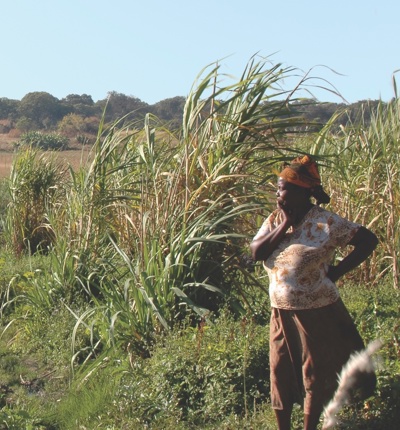
Whose jurisdiction is it anyway?
Recent developments in the relationship between Vedanta and the Zambian government has had repercussions on access to justice for the claimants suing Vedanta and KCM in the English courts
Posted on 19 August 2019
Recent developments in the relationship between Vedanta Resources and the Zambian government have brought into sharp focus, the challenges to access to justice presented by the insolvency of local multinational companies’ (‘MNC’) subsidiaries whose operations directly cause harm to third parties. One month after the Supreme Court decided that Vedanta’s Zambian subsidiary, KCM, could be joined to proceedings in the English courts, KCM was placed under provisional liquidation in separate proceedings in Zambia. This action prompted Vedanta to commence proceedings before the South African High Court seeking a halt to KCM’s liquidation and an order that the Zambian government resolve its dispute through arbitration in South Africa. This article assesses what these developments mean for access to justice for the claimants suing Vedanta Resources and KCM in the English courts.
England and Wales: Supreme Court ruled KCM could be joined to proceedings in England
After four years of a hard fought jurisdiction battle, the Supreme Court ruled in April 2019 that 1,826 Zambian villagers could join KCM, the Zambian subsidiary of UK-based Vedanta Resources to proceedings in the English courts. As noted by the High Court in 2016, the claimants’ decision to sue the UK parent company, Vedanta, was partly based on the concern that because of KCM’s “uncertain financial position” and “significant financial difficulties”, “there is a real risk that, without Vedanta’s support, [KCM] may have insufficient resources to meet the claims.” In his decision, the judge had referred to previous “ministerial statements about the threat of insolvency, bankruptcy or receivership facing KCM.”
Zambia: KCM’s provisional liquidation
By an order dated 21 May 2019, the Zambian High Court appointed provisional liquidators with the power to carry on business on behalf of KCM, take decisions relating to its assets, make or defend actions and other legal proceedings on its behalf and to dispose of its assets by public tender. The liquidation action was brought by the Zambian government through ZCCM-IH, a joint shareholder in KCM with Vedanta Resources. The government alleges that KCM has failed to pay dividends, tax and underinvested in the mine. Because the provisional liquidation places KCM under the jurisdiction of the Zambian courts, parties proceeding with or commencing any actions against KCM while it is in provisional liquidation must comply with Zambia’s Corporate Insolvency Act.
South Africa: Vedanta’s arbitration proceedings
As a result of the Zambian government’s decision to liquidate KCM, Vedanta commenced proceedings before the South African High Court seeking a halt to KCM’s liquidation and an order that the Zambian government resolve its dispute through arbitration in South Africa. In a case before the South African High Court, Vedanta accused ZCCM-IH of breaching a clause in the shareholders agreement that stipulated that any disputes arising from the management of KCM should be subject to arbitration proceedings in South Africa. Vedanta alleged that the claim by the Zambian government that it had mismanaged KCM was subject to arbitration1. Agreeing with Vedanta, the South African High Court ruled that ZCCM-IH acted in breach of the arbitration agreement when it instituted provisional liquidation proceedings. Vedanta Resources was granted an interim injunction to restrain ZCCM-IH and the Zambian government from continuing with its liquidation of KCM and compelling it to resolve the dispute through arbitration in South Africa.2
Jurisdiction and access to justice
It remains unclear whether Vedanta Resources will resolve its dispute with the Zambian government through arbitration in South Africa. Until the outcome of the arbitration and provisional liquidation is clear, the claimants are limited in terms of what they can do to hold KCM accountable before the English courts. What these developments demonstrate is that the insolvency of local MNC subsidiaries whose operations directly cause harm to third parties can result in a denial of victims’ access to justice. However, this obstacle can be overcome by legal action against the MNC parent company in its home state courts. In Okpabi v Royal Dutch Shell, Sales LJ noted that in the event of an insolvent subsidiary, it was “very important to recognise the liability of others as well, if the relevant legal test for liability is satisfied”. That statement is especially important in light of the above developments.
1Vedanta Resources Holdings Limited v ZCCM Investment Holdings plc Case No: 2019/23462 (23 July 2019), In the High Court of South Africa, Gauteng Local Division, Johannesburg.
2 Ibid at para [57]


